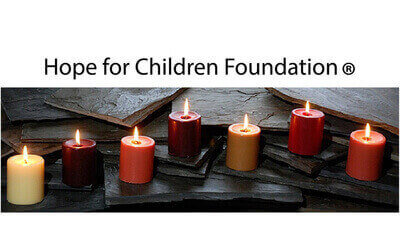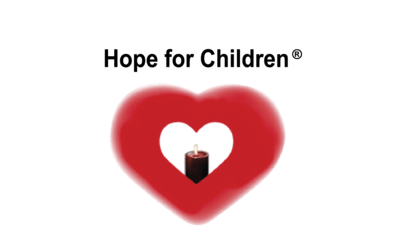Good Grief
Posted by Dr. Yvette Evans, Ed.D., M.S., CCC/SLPL on May 26th 2023
Help Your Child, Yourself and Others Walk With Grief: “Good Grief”
What is Grief?
Grief has many names, faces, and dimensions. It is a difficult experience for anyone at any age. When your child, loved one, or friend is grieving, it can be helpful to keep a few important realities and strategies in mind. This article is intended to help one understand the meaning of grief, the typical neuropsychological phenomena that accompany the grieving process, how to communicate with a child, teen, or adult about grief, and suggest action plans to help those we love walk with and face their grief.
According to Smith, Robinson, and Segal (2023), grief is a natural response to loss. It is the mental and emotional suffering one feels when a person or other living being such as a pet with whom we have formed an affectionate bond has been lost to death or circumstances. Grief has physical, behavioral, social, cognitive, cultural, philosophical, and spiritual dimensions. It provokes a disparate collection of feelings that may include sorrow, anger, and confusion. Speaking as a person who is currently grieving, I can say it is a complicated and challenging experience in which emotions may change from moment to moment. Grieving involves the loss’s impact on us and our response to it.
One can endure a wide range of losses from a close friend moving to a different state to the death of a parent, sibling, grandparent, other relative, or friend. Children can experience loss ranging from what seems from an adult perspective like a minor setback such as being unable to locate a favorite toy to more serious adverse events like being unable to feel safe in their environment. Loss is not a single type of event but comes in many forms. Loss can be obvious and painfully familiar such as when death takes a loved one or pet, but also come from deprivation of experience, loved objects, and/or routines through change as well as absence.
Grief can be emotionally overwhelming for many of us. We wonder how we will ever get through the excruciating pain of sadness, sorrow, and loss. When we grieve, it is often helpful to seek assistance from supportive friends and family or mental health professionals who can help us learn to accept a sad day for what it is, learn to live in a new world without the loved objects we associate with safety and meaning, as well as find joy in memories and simple daily activities. Grieving is a very personal and individual process which is painful but offers the opportunity to learn new viewpoints and life skills. Again, for someone currently experiencing grief, I can say these steps are not easy.
It is important to remember that the idea one can “get over” grief is simplistic can be misleading. The brain/mind is complex, including neurochemical, psychological and spiritual dimensions. We can help our minds adapt to grief and take the wisdom, perspective, and appreciation it offers if we respond to it thoughtfully. In short, the grief process is not merely one of pain to be endured but an opportunity to understand ourselves and others in greater depth. The Grieving Brain (O’Connor, 2022) discusses how to navigate bereavement in the healthiest way.
Starting to Understand Grief: Key Points
The phrases “buck-it-up” or “that’s just the way it is” are not helpful for children or adults because they minimize the pain the person is feeling. Grief is a reaction to an event. Our minds can have a difficult time processing the reality and implications of a loss. It is important to guide a child or an adult to “walk” with their grief and not ignore it, hide their feelings, or feel helpless during any type of bereavement:
Grief does not “go away” over time. This concept is extremely important. We have heard that “time can cure all;” however, as it is related to grief, brain science does not support that claim. After such a loss occurs, the brain is trying to work out a problem. The real world no longer matches the “mental map” that once was experienced, due to the lack of presence of that person over space and time. When we experience loss, the map our brain worked from was profoundly altered. For a while, neurons fire every which way, trying to make sense of things. This extreme brain activity experienced from loss reveals that grief overwhelms us.
Eventually, for the brain to learn coping skills, new connections are created. Thus, the person lives their life during this new change in reality. This takes time along with new experiences. It is extremely important for each person to provide mental space without being concerned with a timeline. It can be very dangerous if someone does not progress in their mourning and grieving process. This person could remain in a state of chronic or prolonged grief.
Dr. O’Connor indicated it is important to remember that death is not something you just “get over.” Life- altering changes stay with us forever, and to grow, we must understand that the presence of grief does not mean we cannot find joy in other places. ”People who had separation anxiety when they were kids are more likely to have difficulty when they are grieving,” she says. “It’s almost as though something about that attachment neurobiology might be working differently for them. It’s not that they don’t want to feel better, but there are things getting in the way of them being able to do that.”
Our brain needs time and experience to learn. When our loved one died, the map that our brain worked from, both our inner and outer worlds, was profoundly altered. Our brain needs to learn to make new neural connections. Grieving is a form of learning. Psychology defines learning as acquiring new knowledge that enables different behavior. So, it is not enough to know that a person close to us died—we must learn a whole new set of habits.
Learning new things takes a multitude of skills such as concentration and the need for the support of others. The act of learning has a few similar aspects to the process of grieving. Understanding grieving takes time, is confusing, and is frustrating. It is a unique experience. Not everyone learns the same way, nor does everyone experience grief in the same way.
Since we have different ways of processing information, the coping skills that we teach our children must align with their ability to process, their basic needs, and their stage of development.
Mission of Hope for Children Foundation
The Hope for Children Foundation supports children, teens, their families, and other adults who experience abuse. Abuse causes great loss in both children and in adult abuse survivors. Abused children experience great loss that takes many forms. Abuse in early life can create massive and multiple losses, including but not limited to loss of childhood; loss of faith in God, loss of hope in a higher power, loss of family relationships, loss of innocence; loss of trust; loss of a sense of security and safety; loss of self-confidence; loss of self-esteem, loss of personal power, loss of the ability to learn; loss of the ability to feel pleasure in life and, in some cases, loss of the will to live.
Most abuse survivors experience psychosocial losses resulting from their traumas. Some of these adults who admit they were abused as a child express feeling a deep loss of “who I could have been if I had never been abused. ”Sustained abuse impacts a child’s everyday life and many wonder if “I was not always in survival mode how I would be different.” Many of these survivors feel they were not given or allowed the opportunity to develop their talents and to cultivate their real selves. They state that they feel that their “true self” was left dormant by years of surviving daily mistreatment and abuse.
Mental health professionals have sought to make sense of early life losses and developed a literature on grief and bereavement after traumatic events. Complicated Grief (CG) is a maladaptive symptom pattern secondary to a major loss that lasts beyond the normal grieving time (Prigerson, Frank, et al., 1995). Other disorders, such as Posttraumatic Stress Disorder (PTSD), can accompany CG (Barry, Kasl, & Prigerson, 2001; Prigerson, Frank, etal., 1995). Some of the challenges adult survivors experience are anger, hopelessness, confusion, and depression. In addition, individuals may develop negative beliefs and expectations about themselves and the world which may be temporary or more enduring, suggesting the person is in a state of chronic or prolonged grief.
“Bereavement overload” is one term used to describe the mental health status of survivors of long-term child abuse which exceeds coping skills and capacities. Bereavement overload can occur when a grieving individual confronts multiple losses simultaneously or in rapid succession, such that one loss cannot be accommodated before another appears. Stroebe, Stroebe, W., Hansson, R., & Schut, H.(Eds.).(2001). Technically, bereavement refers to the state of loss, while grief is the reaction to a loss but the terms are often used interchangeably.
Take a moment to explore this website for helpful resources and training on how to support children, teens, their families, and other adults through the various losses we all face. Healing from one’s loss is very important to us and we hope to help you through the challenging process that can develop into “good grief.”
Here is the URL for the Hope for Children Foundation list of services. https://hopeforchildrenfoundation.org/services/
Sincerely,
Dr.Yvette Evans,Ed.D.,M.S.CCC/SLP-L
Pediatric Speech-Language Pathologist
Member of the Board of Directors
Hope for Children Foundation


